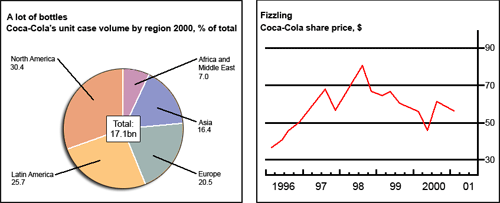What is the right form for these expressions:
"In 2000 Coca-Cola has sold 17 billions of bottles"
or
"In 2000 Coca-Cola has sold 17 billion of bottles"
Could you please, explain why?
UPDATE based on answers
The present perfect should not be used here — we know the exact year, so past simple should be used instead.
The example was inspired by the IELTS Academic Writing Task 1. Here is the relevant pie chart.

